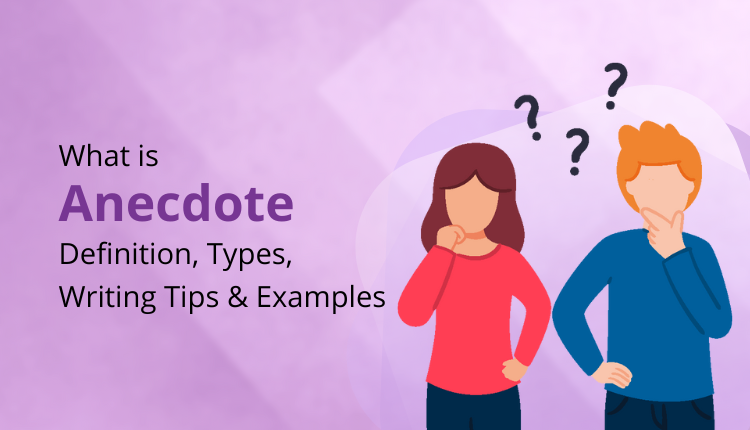There is something special about stories. Among the countless techniques of storytelling, anecdotes are remarkable for their power to touch and connect with people on a personal level.
Whether told in informal conversations or employed in formal writing, anecdotes bring spice and richness to any story. But what is an anecdote? Knowing its definition can make your communication skills better, and your stories more effective. Let’s enter the realm of anecdotes and see how they can make our writing and lives richer!
What Is an Anecdote?
An anecdote is a short, interesting narrative that focuses on a particular event or occurrence. It usually deals with real-life situations and can enrich conversations, speeches, or writings.
These brief stories are effective tools for making a point or creating feelings. Anecdotes make facts personal by reaching out to the audience on a human level. They can be entertaining while offering insight into larger themes or messages.
Purpose and Importance of Anecdotes
Anecdotes are effective narrative tools. They capture the imagination of readers by providing a personal touch and making abstract concepts tangible. When integrated into stories, they create interest and stir emotions.
Anecdotes can also present key points in an effective manner. They offer actual situations that make learning and remembering easier. By relating to the audience on an emotional level, anecdotes make messages memorable and effective in different situations such as speeches, writing, or presentations.
Types of Anecdotes
Anecdotes fall into different categories, each with a specific purpose. Personal anecdotes are based on individual experiences, so they are real and of interest to the audience. Anecdotes tend to create emotions and connect on an individual level.
On the other hand, historical anecdotes provide insights into significant events or figures. They add depth to discussions by illustrating real-life scenarios that shaped our world. Each type enriches communication by offering vivid illustrations of points being made.
How to Write an Effective Anecdote
To create an effective anecdote, begin with purpose. Determine the message you wish to share and why it matters to your audience. This helps your story become relevant and interesting.
Finally, apply descriptive details to make the experience vivid. Include emotions, surroundings, and people that can be related to by readers. Keep it short; a proper anecdote is not too lengthy or complex. Be clear in conveying it, while ensuring that it is something to remember and is relatable to your readers’ experiences.
Examples of Anecdotes in Use
Anecdotes also occur in differing contexts, including informal discussion as well as inspirational speeches. To illustrate, the teacher would speak about the particular student and overcome to make their message relate more and inspire people.
In literature, writers tend to use anecdotes in order to build characters or portray themes. Mark Twain’s “The Adventures of Tom Sawyer” features such moments that identify youthful naughtiness through exciting stories, making readers closer to the story and demonstrating deeper insights into childhood and adventure.
Good grammar checker can make your writing clearer and more effective. Trinka is a professional tool that is made to take your skills to the next level. It provides real-time feedback, making sure that each sentence reads perfectly.
You can identify mistakes and correct sentence structure with ease using Trinka. The site serves all types of writing requirements, ranging from school assignments to creative writing. Use technology to polish your grammar and communicate confidently in any situation.
Conclusion
Anecdotes are great tools for storytelling that are capable of engaging readers and communicating effectively. Used in writing, speeches, or in everyday conversations, they give depth and relatability to your material.
Learning about the meaning of anecdotes can further develop communication skills. It invites people into personal experiences and makes them feel like they belong. So embrace anecdotes as a method for making your story richer and grabbing people’s attention easily.
FAQs
What is an anecdote and examples?▼
An anecdote is a short, interesting tale that makes a point or tells an experience. These stories are usually personal and familiar, which makes them good at reaching people. For instance, one can tell a funny story about his first day at school to emphasize beginning all over again. One can relate a funny experience at the workplace to illustrate the need for collaboration. Anecdotes engage people’s imagination with the use of narrative, making ideas more comprehensible and interesting.
What is the entire significance of anecdote?▼
The word “anecdote” has its origin in the Greek term “anekdota,” which translates to unprinted. In contemporary parlance, it is a short, interesting account of a factual event or individual. Anecdotes are commonly employed to support arguments or entertain a crowd. They bring depth and familiarity to communication, making concepts more memorable and effective. In writing or speech, anecdotes are potent weapons for bonding and persuasion. Grasping their complete meaning increases your narrative abilities and enriches your interactions with others.

